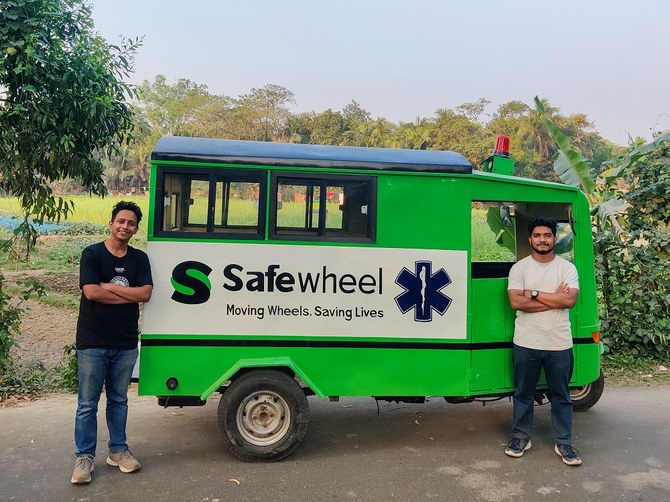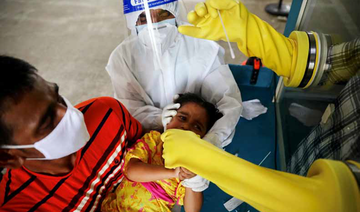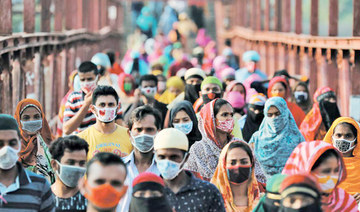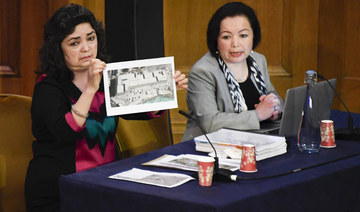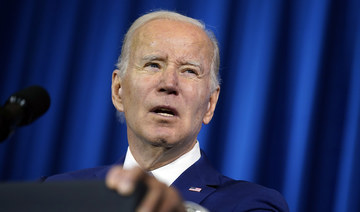DHAKA: When Faysal Islam lost a loved one in a road accident in 2016 due to lack of ambulance support, he launched the Safewheel project with two friends to provide low-cost medical services to isolated rural areas of Bangladesh.
On Wednesday, the 24-year-old was named 2021 Commonwealth Young Person of the Year — in addition to winning the regional award for Asia and prize money of $7,000 — for his “innovative approach to community help.”
“One of our co-founders’ uncles died in 2016 because no ambulance was available. This incident prompted me to do something to facilitate medical care for people,” Islam, co-founder and chief business development officer of Safewheel, told Arab News on Saturday.
The initiative, which uses a three-wheel ambulance to provide on-call healthcare, was designed as a “social enterprise” and launched in 2019 by Islam and his university friends Rafiq Islam, 26, and Anas Makki, 25.
However, delays caused by the coronavirus pandemic meant that the trio could formally launch the project only last month.
“We have been working on this project for the past three years. The pilot program was launched in the Nogaon district in 2019, and it was very successful. We served more than 1,000 villagers with 10 vehicles,” he said.
Islam said that his “dream” is to expand ambulance services to “every village in the country.”
“We are planning to introduce a trained paramedic in each of the ambulances to accompany the patients to hospital,” Islam, a resident of Dhaka, said.
At the moment, Safewheel provides services to nearly 100 villages in the Feni district, 156 km from Dhaka, using one ambulance.
The picturesque Feni district comprises 564 villages, with a total population of nearly 1.5 million, according to government data.
Most residents rely on farming for their livelihood, with a significant number employed in the Middle East as migrant workers. Financial resources are limited and medical services even more scarce.
Islam said that the Safewheel operations were launched in Feni due to its geographical advantage — the area is sandwiched between Dhaka and commercial city Chottogram, and has a strong communication network.
“People from Feni can phone Safewheel’s local office to use the ambulance service. It’s not a free service since we wanted to make it a sustainable model,” Islam said.
He said that some NGOs in African countries had set up a similar program, “but failed in the long run as the funding was limited.”
“We didn’t want to rely on any donations,” Islam said.
However, residents are not complaining. The ambulance’s cost to cover 25 km is around $7, three times less than a traditional ambulance.
In the past three weeks, dozens have used the Safewheel ambulance’s services, with several saying they “might not have been able to afford or receive any medical care without it.”
“My husband works as a daily laborer, and we don’t have savings to spend on medical care. I used the ambulance service during the birth of my second son,” Taslima Begum, a housewife and Feni resident, told Arab News.
Morshed Alam, a 36-year-old transport worker, said that the ambulance was more suitable for the villages’ narrow streets.
“My father had a heart attack last month, and I immediately called the ambulance service. The road to my village home was very narrow, and it’s impossible for a regular ambulance to drive up to my doorstep. If the Safewheel was not there, I don’t know what would have happened to my father,” he said.
Next month, Safewheel plans to add three more vehicles to its fleet and expand coverage to 500 villages in the district.
“Currently, we are focusing on organizing funds which will help us to grow more and expand our service areas. We are expecting some funds from Australia very soon. On March 8, we signed an MoU with the Swiss Embassy in Dhaka for a ‘matching fund’ for our social enterprise,” Islam said.
Public health experts have welcomed the initiative, describing it as a “big relief” during health emergencies.
“Transporting patients to hospital during an emergency is a serious concern for millions of people. In this situation, this organization came forward with a low-cost solution which attracted huge attention of the local people,” Prof. A.S.M. Amanullah of Dhaka University told Arab News.
Since Bangladesh is a developing country with limited resources, authorities “can’t always extend support to rural people to meet their health requirements,” he said.
“I think the government, local and international organizations and other civil society groups should come forward to help them in extending their catchment area throughout Bangladesh,”Amanullah said.
Every year, the Commonwealth Youth Awards recognize young people from Commonwealth nations who play a meaningful role in achieving the UN’s Sustainable Development Goals through projects that transform people’s lives in their communities.



